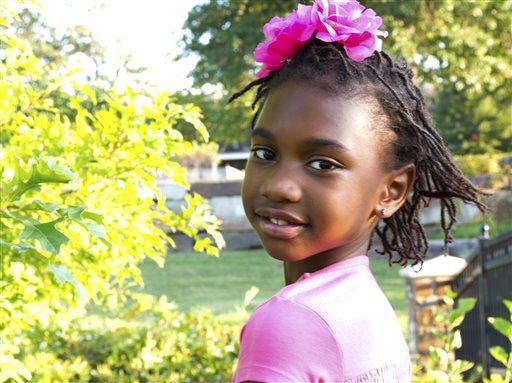(AP) Schools criticized for bans on dreadlocks, Afros
By LEANNE ITALIE
Associated Press
With those words, second-grader Tiana Parker of Tulsa, Okla., found herself, at age 7, at the center of decades of debate over standards of black beauty, cultural pride and freedom of expression.
It was no isolated incident at the predominantly black Deborah Brown Community School, which in the face of outrage in late August apologized and rescinded language banning dreadlocks, Afros, mohawks and other “faddish” hairstyles it had called unacceptable and potential health hazards.
A few weeks earlier, another charter school, the Horizon Science Academy in Lorain, Ohio, sent a draft policy home to parents that proposed a ban on “Afro-puffs and small twisted braids.” It, too, quickly apologized and withdrew the wording.
But at historically black Hampton University in Hampton, Va., the dean of the business school has defended and left in place a 12-year-old prohibition on dreadlocks and cornrows for male students in a leadership seminar for MBA candidates, saying the look is not businesslike.
Tiana’s father, barber student Terrance Parker, said he and his wife chose not to change her style and moved the straight-A student to a different public school, where she now happily sings songs about her hair with friends.
Tiana added: “I like my new school better.” As for the thousands of emails and phone calls of support the family has received from around the world, she said she feels “cared about.”
Deborah Brown, the school’s founder, did not return a call from The Associated Press. Jayson Bendik, dean of students at Horizon in Lorain, said in an email that “our word choice was a mistake.”
In New York City, the dress code at 16-year-old Dante de Blasio’s large public high school in Brooklyn includes no such hair restrictions. Good thing for Dante, whose large Afro is hard to miss at campaign stops and in a TV spot for his father, Bill de Blasio, who is running for mayor.
There is no central clearinghouse for local school board policies on hairstyles, or surveys indicating whether such rules are widespread. Regardless, mothers of color and black beauty experts consider the controversies business as usual.
Bond founded the organization in response to an episode in 2007 when radio host Don Imus called members of the Rutgers women’s basketball team “nappy-headed hos.” He later apologized.
In Chicago, Leila Noelliste has been blogging about natural hair at Blackgirllonghair.com for about five years. She has followed the school cases closely. The 28-year-old mother with a natural hairstyle and two daughters who also wear their hair that way said it is a touchy issue among African-Americans and others.
Particularly painful, said Noelliste and others, is the notion that natural styles are not hygienic.
Ryan Kiesel, executive director of the Oklahoma chapter of the American Civil Liberties Union, said legal rulings on hair and other issues pertaining to school dress codes have been fairly clear.
Denene Millner in Atlanta created a blog, Mybrownbaby.com, for other African-American moms and also followed the school hair controversies. She went natural nearly 14 years ago for the sake of her daughters, now 11 and 14.
She said watching Tiana sob on camera “about these grown-ups, black folks, who are supposed to not just educate her but show her how to love herself, it tore my heart to shreds.”
___
Follow Leanne Italie on Twitter at http://twitter.com/litalie

COMMENTS
Please let us know if you're having issues with commenting.